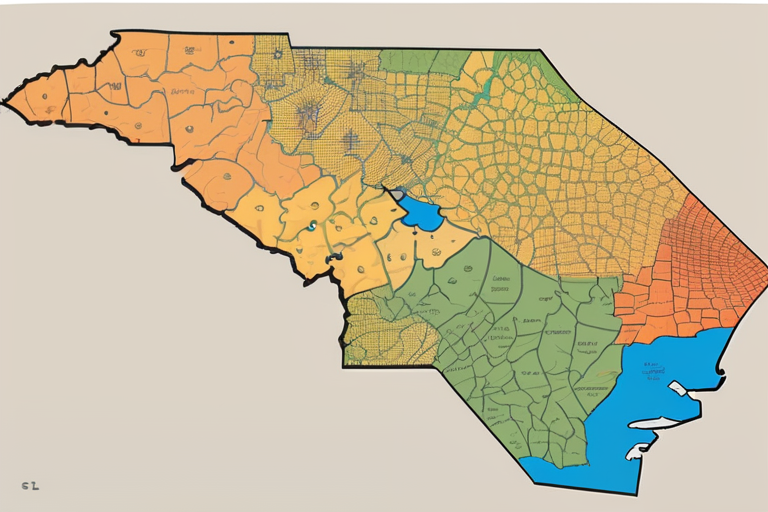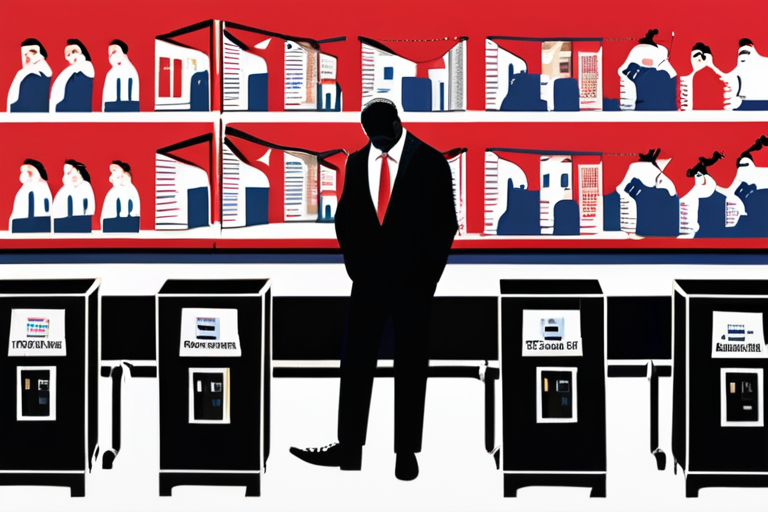In the heart of Georgia, where the Peach State's politics have long been a battleground, voters delivered a resounding message on election day: Democrats are on the rise. The party's surprise victories in the state's Public Service Commission, where two seats flipped with wide margins, marked a significant milestone in a year that saw Democrats overperform in elections nationwide. But beyond the headlines, a closer look reveals a more nuanced story of grassroots momentum and shifting voter sentiments.
The Democratic Party's fortunes have long been tied to the national landscape, with President Trump's unpopularity serving as a rallying cry for voters disillusioned with his policies. Yet, as the party looks to extend its momentum into the 2026 midterms, it's clear that the wins in Georgia and elsewhere are more than just a reaction to the president's unpopularity. They represent a deeper shift in voter attitudes and a growing recognition of the party's policy priorities.
One of the key factors driving the Democratic Party's success is its focus on down-ballot races, where candidates are often more accountable to local voters and less beholden to national party machinery. In Georgia, for example, the Public Service Commission is responsible for regulating the state's utilities and overseeing its energy infrastructure. The two Democratic candidates who won their seats, both of whom ran on platforms emphasizing the need for greater investment in renewable energy and more affordable rates for consumers, tapped into a growing sense of frustration among voters who feel that the state's energy policies are out of touch with their needs.
"We're seeing a real shift in the way that voters are thinking about energy policy," said Dr. Matt Wilson, a professor of political science at the University of Texas at Dallas. "They're recognizing that the old model of relying on fossil fuels is no longer sustainable, and they're looking for candidates who can offer a vision for a cleaner, more equitable energy future."
In Pennsylvania, another key battleground state, Democrats made gains in the state legislature, where they picked up several seats in the House of Representatives. The wins were largely driven by a strong turnout among young voters and people of color, who are increasingly becoming a key demographic for the party.
"The Democratic Party's success in Pennsylvania is a testament to the power of grassroots organizing and the importance of engaging with voters on the issues that matter most to them," said Rachel Kleinfeld, a senior fellow at the Carnegie Endowment for International Peace. "By running candidates who are committed to issues like education, healthcare, and economic development, Democrats are able to tap into a sense of optimism and hope among voters that is hard to find in other parts of the country."
As the party looks to build on its momentum, it will be crucial for Democrats to continue to focus on the issues that drive voter engagement and turnout. By running candidates who are committed to issues like climate action, economic justice, and social equity, Democrats can build on the gains they've made and create a lasting foundation for success in the years to come.
In the end, the Democratic Party's wins in Georgia and elsewhere are more than just a reaction to the president's unpopularity. They represent a deeper shift in voter attitudes and a growing recognition of the party's policy priorities. As the party looks to extend its momentum into the 2026 midterms, it's clear that the wins in Georgia and elsewhere are just the beginning of a new chapter in American politics.



























Share & Engage Share
Share this article